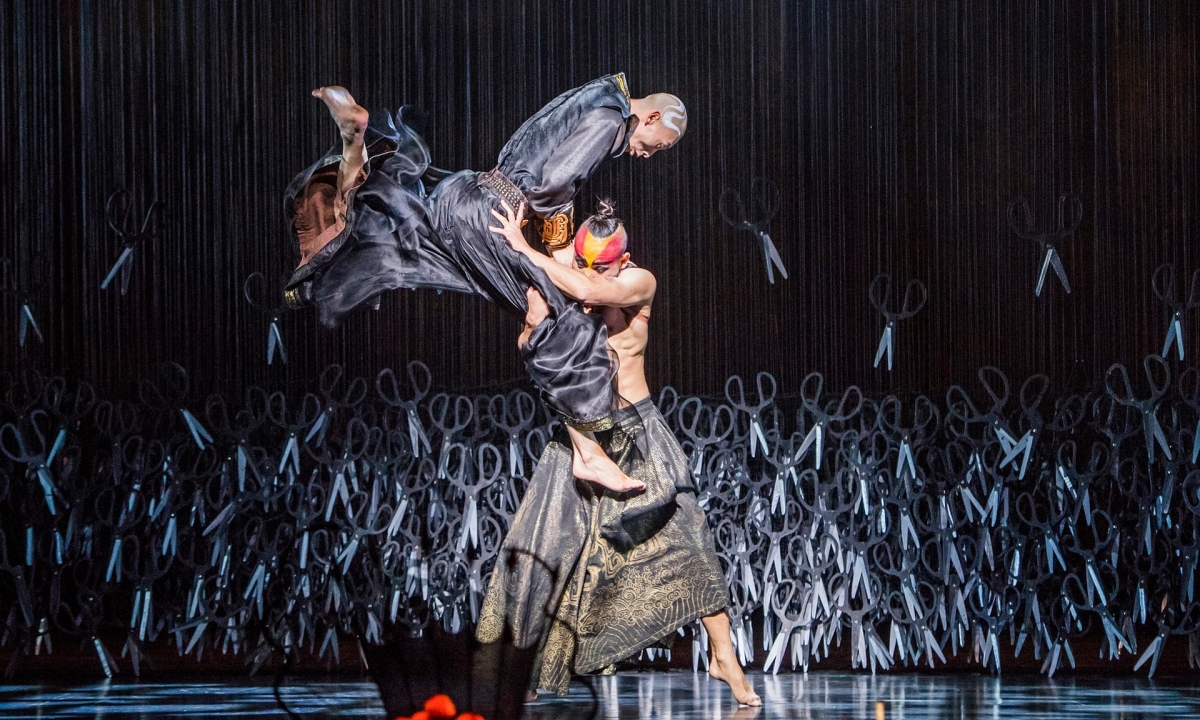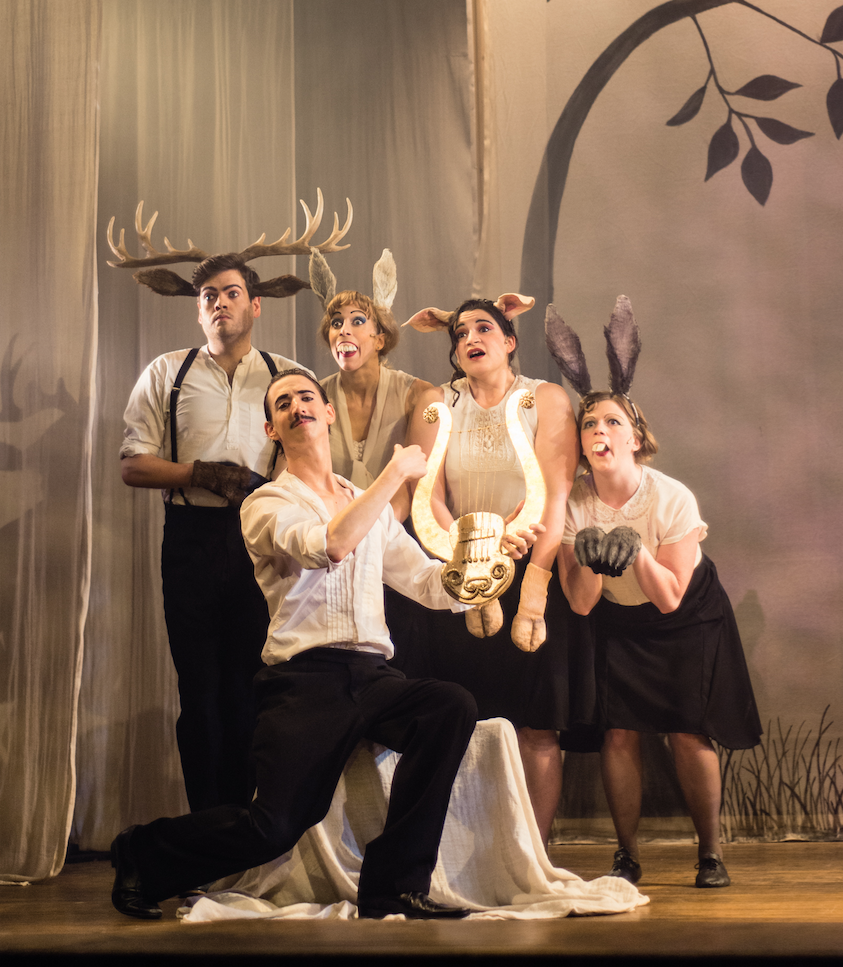Taking place over 22 days, the Festival presents an array of delights both challenging and immersive.
Now in his third year as Artistic Director, David Berthold is presenting yet another Brisbane Festival packed with daring new productions, Australian premieres, and home-grown talent. As in past years, there is a distinct political thread through 2017’s programme, with works that are thoughtful, provocative, and challenging.
“There is a great deal of new work, from large theatre and dance productions, to new music,” Berthold tells Limelight. “Contemporary popular music is very much part of Brisbane’s personality – it’s proud of its place in the history of popular music – and this Festival underlines that with a big sequence of work at The Tivoli, an iconic venue in Brisbane, as well as elsewhere. Brisbane is also proud of its place as an Asia Pacific player, and the Festival this year has a suite of work from China, Korea, Singapore, and Indonesia.”
One of the most exciting things on offer this year is Terror, a courtroom drama that asks whether it is morally acceptable to sacrifice 164 people to preserve 70,000. In this debut play by German defence lawyer and author Ferdinand von Schirach, a hijacked plane is heading towards a packed football stadium. Defying orders, a fighter pilot shoots the plane down, killing everyone on-board. Put on trial and charged with murder, the fate of the pilot rests in the audience’s hands, with the Playhouse in the QPAC transformed into a courtroom and the audience voting on the pilot’s guilt or innocence at each performance. An Australian exclusive, Brisbane Festival has imported Sean Holmes’ UK production, currently playing at London’s Lyric Hammersmith.
“I think people love being exercised. This play grapples with a classic ethical conundrum, and the experience of the play around the world has been that people often find themselves in surprising disagreement with their friends. Arguments! And audiences love a bit of agency these days – so when they are charged with being the jury, I think they take that responsibility very seriously,” Berthold says.
“They’re sent out at interval, everyone debates with each other about whether to vote guilty or not guilty. When you walk back into the auditorium you’re given a little credit card sized thing and you can send the vote electronically to the judge, and then in a minute or two, the judge will know how the audience has voted. Depending on the vote, the play has two endings… it’s a very well-written play and it gets people talking about ethics in a different way.”
Another provocative work on the table this year comes in the form of Nakkiah Lui’s directorial debut, An Octoroon. In partnership with Queensland Theatre, Lui has reworked African-American playwright Branden Jacobs-Jenkins’ take on an 1856 melodrama depicting a man falling in love with his slave. “[Lui] thought it spoke very directly to the Australian experience, and she wrote to the playwright and asked if she could rewrite or recontextualise it, and he agreed,” Berthold says. Lui has set out to interrogate Australia’s own ongoing history of dispossession with her trademark nuance and wit.
In more art that deals explicitly with Australian politics, Berthold is bringing The Singing Politician – musical settings of speeches given by past Prime Ministers, featuring music by Robert Davidson, John Babbage and Gordon Hamilton – to Brisbane Festival. Performed by Topology and The Australian Voices, it features the words of Robert Menzies, Gough Whitlam, Malcom Fraser, Paul Keating, Bob Hawke and Julia Gillard, with the latter’s Misogyny speech a particular highlight.
Multimedia works on offer this year include the 1925 Soviet silent movie Battleship Potemkin, screened with a new score performed live by Camerata, Queensland’s Chamber Orchestra. Featuring some of the most iconic images in film history, it tells the story of a mutinous crew aboard a Russian battleship during the Revolution of 1905.
Another exciting proposition is the dance piece Under Siege, which brings together one of China’s most prominent dancers, Yang Liping, and Academy Award winner and set and costume designer Tim Yip, best known for his work on the film Crouching Tiger, Hidden Dragon. An immersive reimagining of the decisive battle between Chu and Han armies, Yang has assembled a cast of performers from styles and traditions as diverse as Peking Opera, hip hop, ballet, contemporary dance, classical and folk music.
 Under Siege. Photo © Tristram Kenton.
Under Siege. Photo © Tristram Kenton.
“It’s a great spectacle, no doubt about it,” says Berthold. “The performers are from so many different forms of dance and movement, and the battle between the armies is breathtakingly done. Tim Yip’s design, a vast roof of scissors, is jaw droppingly good.”
Fresh from New York, Dead Puppet Society premieres their most ambitious production to date with Laser Beak Man, a spectacle for the senses based on the drawings of award-winning Queensland artist Tim Sharp. Telling the story of a hero who must regain control of his failing city, the colourful and immersive production is one of the coups of this year’s Festival. With live music composed and performed by Sam Cromack of Ball Park Music, the world of Laser Beak Man is brought to life by seven actors and more than 35 puppets. “Great joy” is what Berthold says audiences will take away from the experience.
“Tim’s view of the world is so innocent, but so cheeky at the same time,” he says. “The puppets are just magical – Dead Puppet Society are now genuine world-beaters when it comes to this kind of work – and Sam Cromack’s Beatles-esque music is perfectly suited. Superheros stories touch something deep inside us, and in many ways Tim is a real superhero. Inspiring, and saving us from cynicism”.
The Tivoli, an art-deco music venue in its 100th year, is set to transform into a decadent Parisian music hall for the Australian premiere of Little Bulb Theatre and Battersea Arts Centre’s musical retelling of Orpheus. Hosted by singer Yvette Pépin, her troupe of players will present a cabaret show depicting the epic tale of Orpheus’ descent into the underworld.
 Performers in Orpheus.
Performers in Orpheus.
Why is Orpheus such a fertile source of inspiration for artists? “Orpheus is the first great singer,” Berthold explains. “The first great poet. In a way, he is the great classical patron of the arts. Through music and words he makes magic in the world. He represents the power of love, and the power of art, to overcome death. But this is the thing – Orpheus fails. I think that’s where his staying power is. His failure worries us. What does it mean that he loses all he went into the Underworld for? What is this story saying? We grapple with this endlessly.”
In terms of classical music, Brisbane gets a visit from the internationally renowned Debussy String Quartet. They bring with them a refreshingly eclectic programme, from Shostakovich’s Elegy from Lady Macbeth of Mtsensk, to Beethoven’s Serioso Quartet, Ravel’s String Quartet in F, and a survey of Romantic and modern cello sonatas performed by Nicolas Altstaedt and Aleksandar Madžar.
Queensland Symphony Orchestra comes to the Brisbane Festival with rising Singaporean conductor Darrell Ang, who conducts a double bill of great 19th-century Romantic works based on the journeys of two of Byron’s heroes, Harold and Manfred.
“Any great festival reflects the city in which it lives,” says Berthold. “And I think Brisbane Festival does that. It also gives us a festive way to lift our gaze out into the world, something our day-to-day lives sometimes don’t allow. It gives us a chance to think differently, to share for a moment in how other people see the world. Over 22 days, we can allow marvels into our lives, take the road less travelled, and come out the other end just a little bit different”.











Comments
Log in to join the conversation.